Managing the Covid-19 crisis: The ongoing impact of remote working
For businesses the continuing effort to “keep the show on the road” is taking a toll, even if there are now signs that there will eventually be an end to the crisis. This is one key finding in the latest Eden McCallum survey of business sentiment during Covid, the seventh to be carried out since April last year.
While many firms have adapted their working practices and seen some benefits from that, as the new year gets underway optimism is in relatively limited supply.
This latest survey of almost 200 business leaders has confirmed how tough a year 2020 was. Around two-thirds (64%) of businesses reported a fall in revenue of over 10% due to Covid, roughly what had been expected in the November survey, but a slightly better performance than had been feared earlier in the year. However, the bad news is not over yet: 48% of businesses expect a similar fall in revenue of over 10% in the first half of 2021 and, one year on from the start of the pandemic, over a third of businesses (37%) think it will take at least another year for a return to “normal” trading conditions, while over half (57%) believe that this ‘normality’ is at least nine months away.
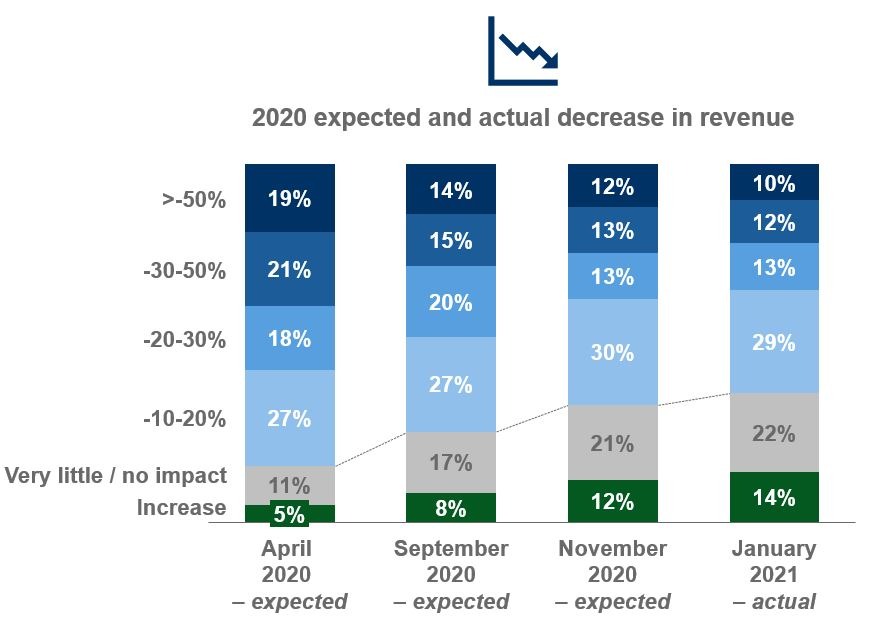
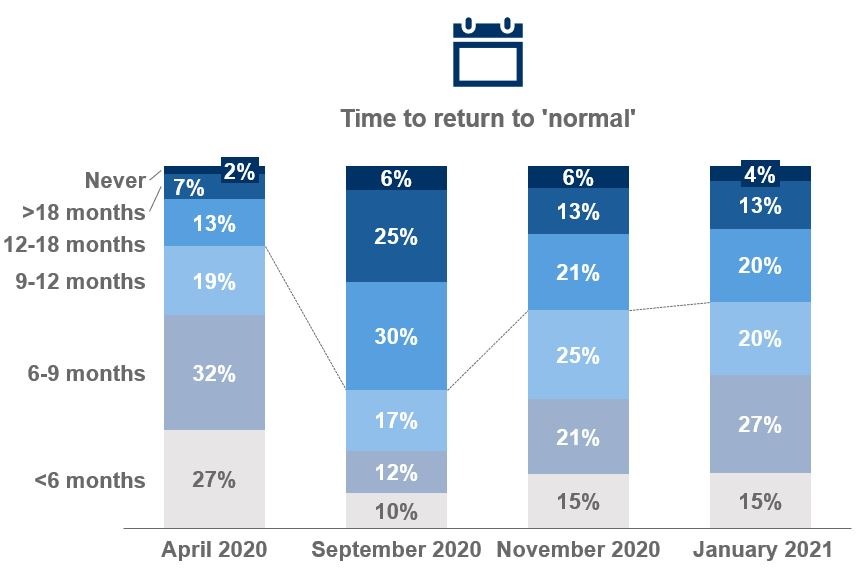
The news on the jobs front is slightly better. Just over half (54%) of businesses have or expect to make redundancies once government support ends, a much lower figure than the 70% making or planning redundancies as recently as September.
Perhaps most striking in the latest survey is the sense in which “the novelty has worn off” as far as remote working is concerned.
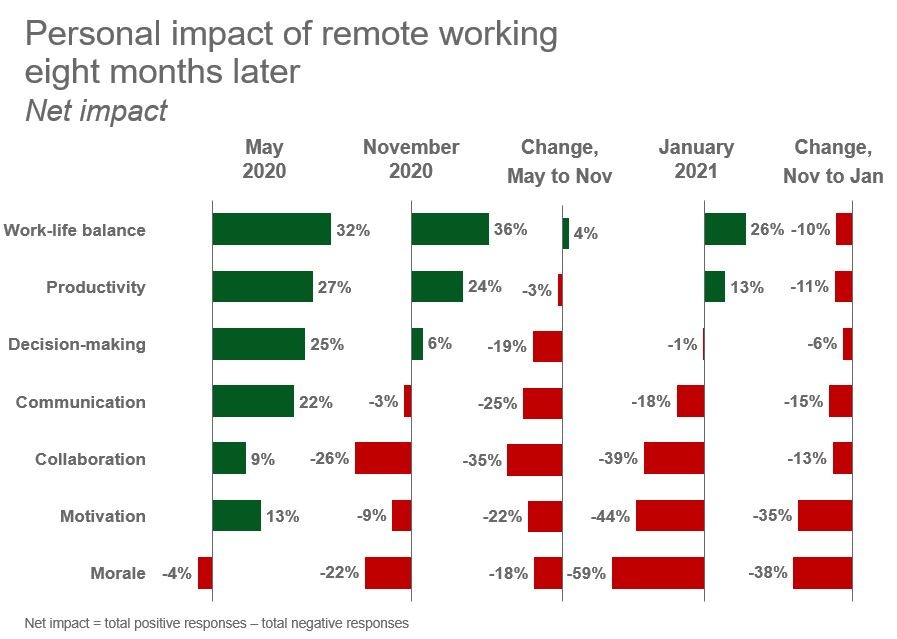
Sentiment about WFH has noticeably worsened since November, with perceptions about motivation and morale both sharply more negative over the past three months. Both men and women – roughly 50% of respondents – say they are having to do more work professionally and also at home or with the family. But while 52% of women feel that they are picking up a larger share of those domestic tasks, only 7% of men feel that way.
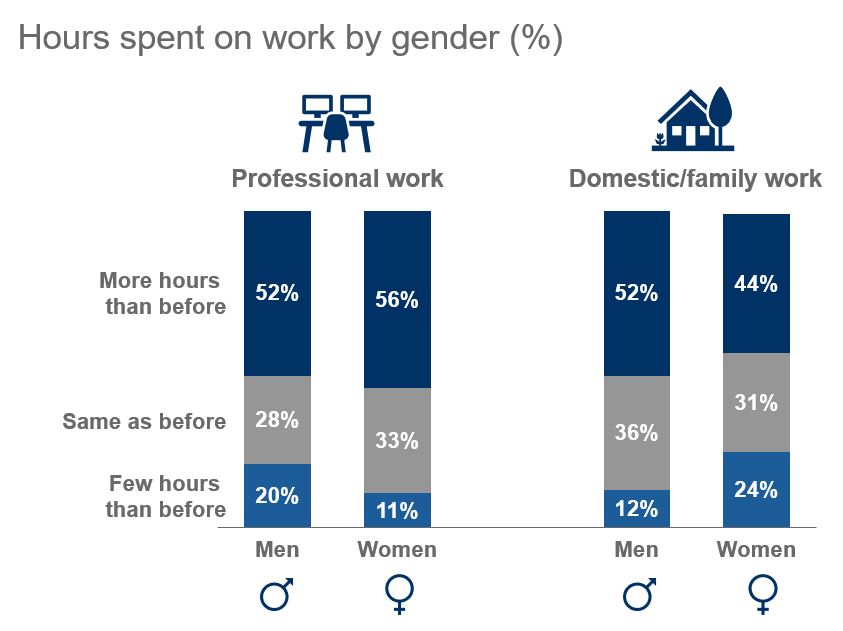
Several data points in the survey reveal the growing problems in businesses where colleagues work from home, separate from each other. Communication was always likely to suffer in this crisis, and the evidence for this is mounting: “Casual and informal exchanges” and “hearing a broader set of views from colleagues” are both suffering – with 92% and 70% of business leaders saying these are harder with remote working.
The Covid crisis has at least freed up one usually pressurised aspect of working life: “getting time in the diary” to talk to colleagues is now much more doable (a net positive score of 19 points).
The view on the impact of WFH on decision making is mixed (the net score, above, is –1). The factors contributing to decision making that have suffered the most are “building consensus amongst stakeholders” (-46 net score) and “open discussions where all views are heard” (-48 net score).
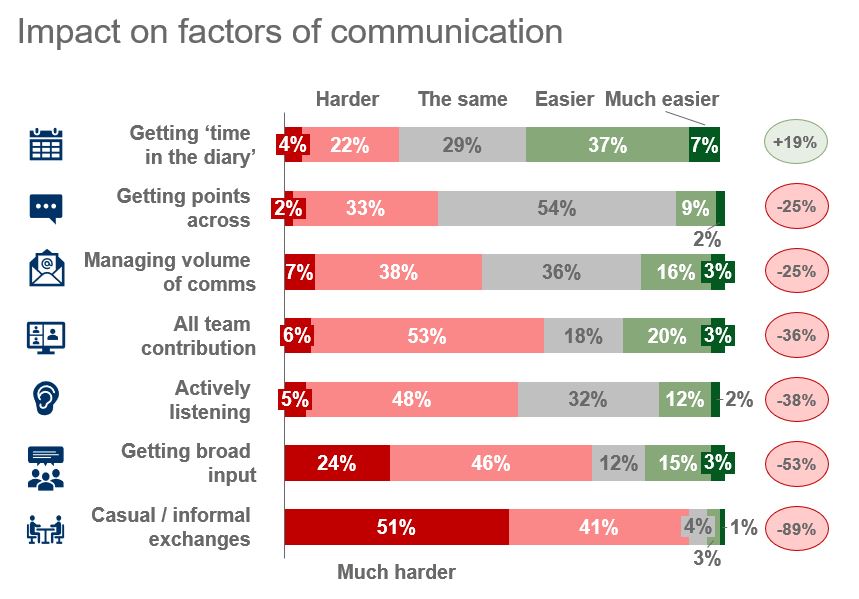
One gender split in the responses was particularly revealing. As far as the running of meetings is concerned women seem to be finding less downside in the new working conditions than their male colleagues:
“Getting points across effectively in meetings” registered a -17 net score for women but -28 for men. “Ensuring all team members can contribute to meetings” saw a -19 net score for women against -43 for men, and “chairing of meetings to facilitate decision-making” had a 0 net score for women against -15 for men. The new online etiquette of Zoom and Teams meetings may be restricting the “mansplainers” a little and giving more people a chance to speak!
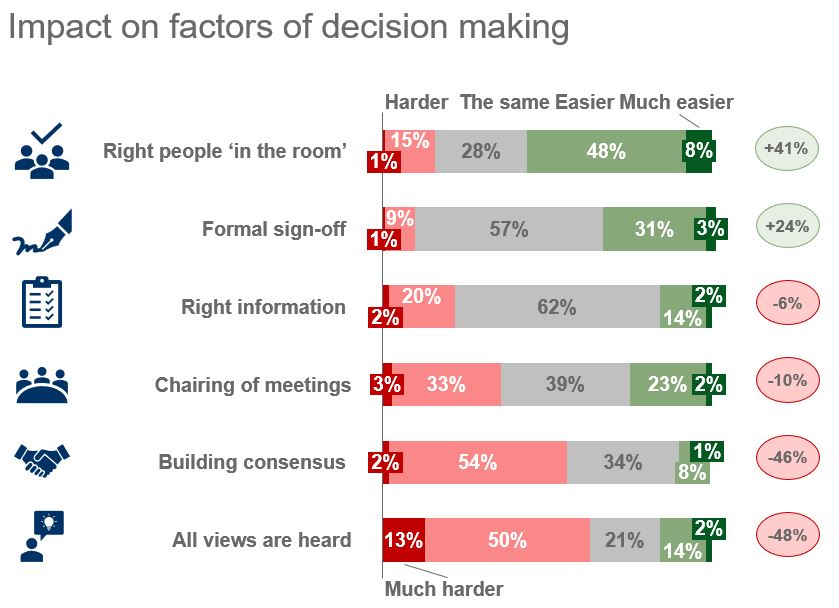
Dena McCallum, founding partner of Eden McCallum, says that the long months of crisis are clearly beginning to undermine morale. “While business performance has perhaps held up better in general than was expected earlier in the crisis, the human cost – in terms of motivation and morale – is now being felt. The leadership challenge in the next few months will involve keeping colleagues engaged and excited about their work, and helping them to cope with the pressures of managing more professional and domestic hours. Mental health is becoming a serious issue in the virtual workplace.”
To view the full results, please click here and follow us to remain updated.

